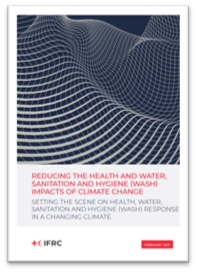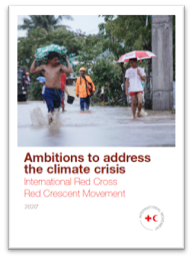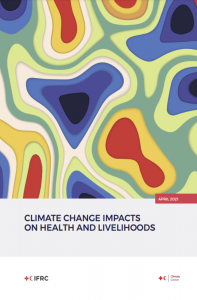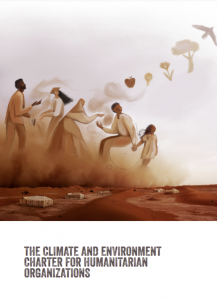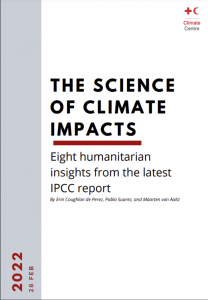
Climate and environment
Evidence-based scientific publications have been warning us for several years that Climate change can cause or enhace different impacts at social, economic, environmental, and/or humanitarian level. It represents a great threat to humankind and in the last decades we have already witness some of the damage it can cause. Climate change is a humanitarian crisis, and requires to scale up and join our efforts at global, regional, national and local level.
Climate variability has a direct impact on our water resources, from water quality and availability, to public health related aspects like the altered distribution of vector-borne and water-borne diseases. It also directly contributes to the higher frequency and intensity of extreme weather events like heatwaves, coldwaves, floods, landslides, hurricanes, typhoons and droughts.
IFRC has identified seven steps to support large-scale evidence-based action to reduce the health impacts of climate change, summarized in the diagram below:
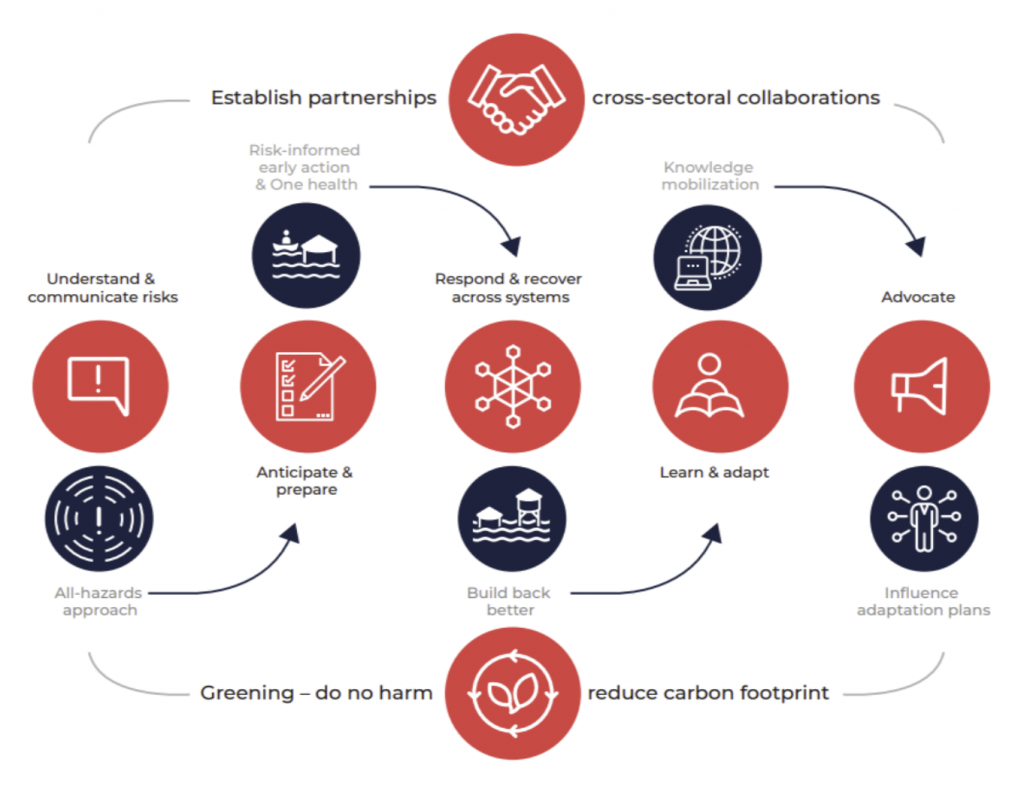
Guidelines and tools
Red Cross Red Crescent Guidelines and tools
Reducing the Health and Water, Sanitation and Hygiene (WASH) Impacts of Climate Change
This publication from 2021 is a resource for National Red Cross Red Crescent Societies and their partners seeking to address health risks that are aggravated by climate change. It outlines the adverse impacts of climate change on human health and seeks to unpack the second pillar of the RCRC Movement’s Ambitions to Address the Climate Crisis.
International Red Cross Red Crescent Movement’s Ambitions to Address the Climate Crisis
This publication from 2020 builds on our unique added value and expertise as the largest humanitarian Movement in the world, and articulates what we are ready to do collectively to address the climate crisis.
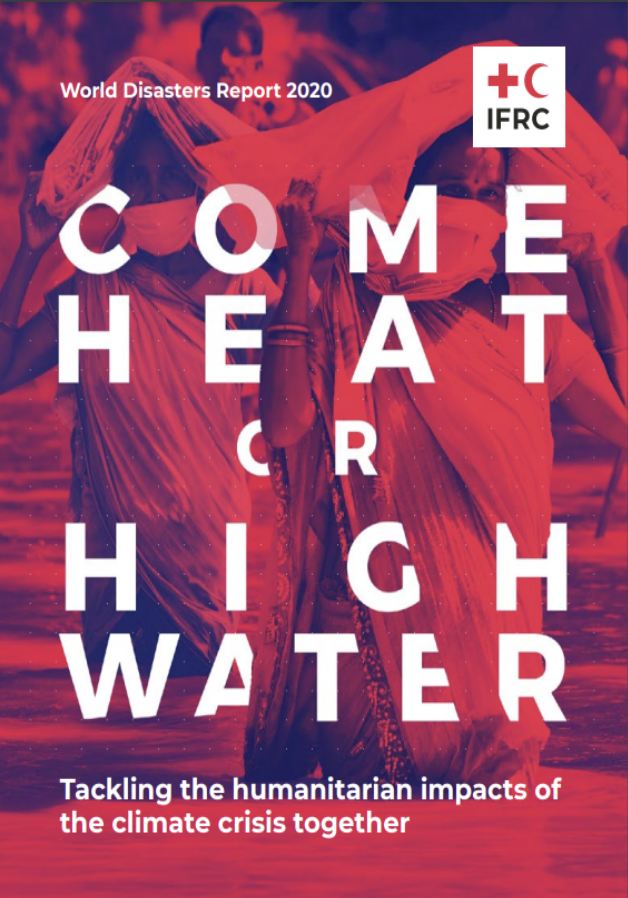
IFRC's World Disasters Report 2020.
Come Heat or High Water: Tackling the humanitarian impacts of the climate crisis together (2021)
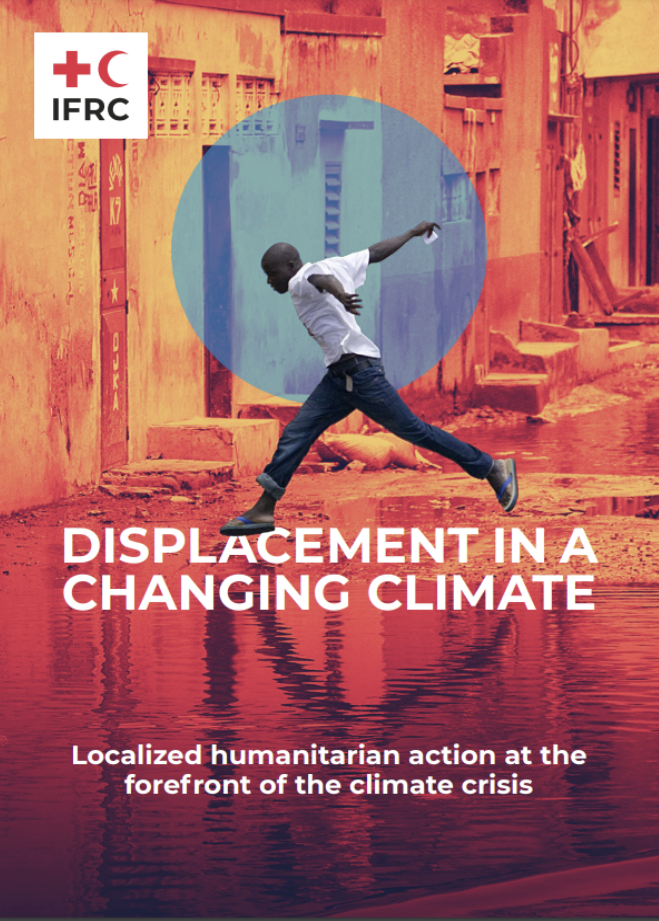
IFRC's Displacement in a Changing Climate
Localized humanitarian action at the forefront of the climate crisis. (2021)
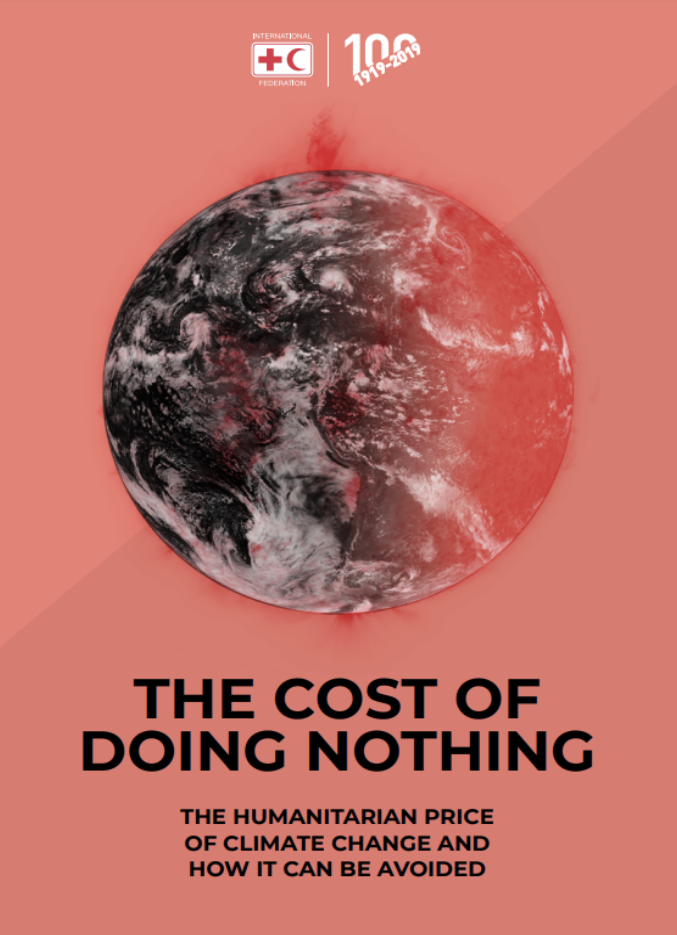
The Cost of Doing Nothing
The humanitarian price of climate change and how it can be avoided. (2019)
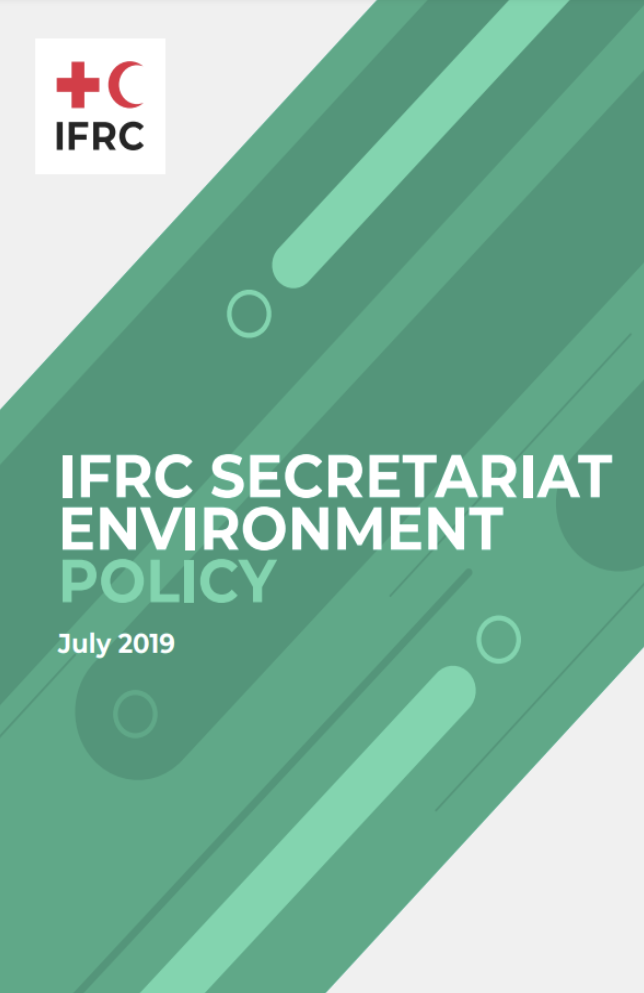
IFRC's Secretariat Environment Policy
This policy ensures the expansion of IFRC's “do no harm”commitment to the environment by fullfilling its environmental obligations. It also sets its environmental goals and objectives, and commits to improve its environmental performance. It may also be useful as a reference for National Societies in their environmental policy development.
External Guidelines and Tools
- World Health Organization (WHO)'s COP26 Special Report on Climate Change & Health: The Health Argument for Climate Action
- IPCC's 5th Assessment Report - Chapter 11. Human Health: Impacts, Adaptation, and Co-Benefits
- WHO's COP24 Special Report: Health & Climate Change
- WHO's "The 1.5 Health Report". Synthesis on Health & Climate Science in the IPCC SR1.5
- UNEP & OCHA's Joint Environmental Unit - The Nexus Environmental Assessment Tool (NEAT+)
- Sphere's Thematic Sheet: Reducing Environmental Impact in Humanitarian Response
- American Red Cross and WWF's Green Recovery & Reconstruction Toolkit (scroll down to the toolkit download section)
- EHA Connect: Connecting Environment and Humanitarian Action
Learning resources
Red Cross Red Crescent Learning resources
- RCRC Climate Center - Climate TRaining Kit, module 2d: Health, WASH and Climate
- Introduction to IFRC's Green Response
- Climate-related Extreme Weather Events and COVID-19: A first look at the number of people affected by intersecting disasters
- IFRC & ICRC's Online course: Sustainable Development in Humanitarian Action
Climate Change Impacts on Health and Livelihoods
An introduction to the series of country reports:
External Learning resources
- ECHO's "Greening Humanitarian Aid" e-Learning for Implementing partners
- ECHO's "Greening Humanitarian Aid" e-Learning for Non-ECHO partners
- WaterAid's Living in a Fragile World: The Impact of Climate Change on the Sanitation Crisis
- Global Water Parternship's Preparing to Adapt: The Untold Story of Water in Climate Change Adaptation Processes
- WHO's Quality Criteria for the Evaluation of Climate-Informed Early Warning Systems for Infectious Diseases
- Environmental Emergencies Centre's (EEC) Training Centre
Advocacy and communication material
The Climate and Environment Charter for Humanitarian Organizations
At the 33rd International Conference of the Red Cross and Red Crescent in December 2019, the ICRC, the IFRC and a number of National Societies committed not only to adapting their ways of working but also to developing a charter to support and promote greater climate action within the humanitarian community at large.
RC Climate Centre’s – The Science of Climate Impacts: Eight humanitarian insights from the latest IPCC report
Making sense of climate change requires an enormous, analytically rigorous, collective effort. More than 270 scientists from around the world have worked together to assess knowledge on climate change impacts, adaptation and vulnerability. Their answers were released in the Sixth Assessment Report (AR6) by the Intergovernmental Panel on Climate Change (IPCC) Working Group II. Now we need to speak about the report’s implications, in language(s) everyone understands.
To include resources on this page, or for more information on IFRC initiatives please contact: wash.geneva@ifrc.org

